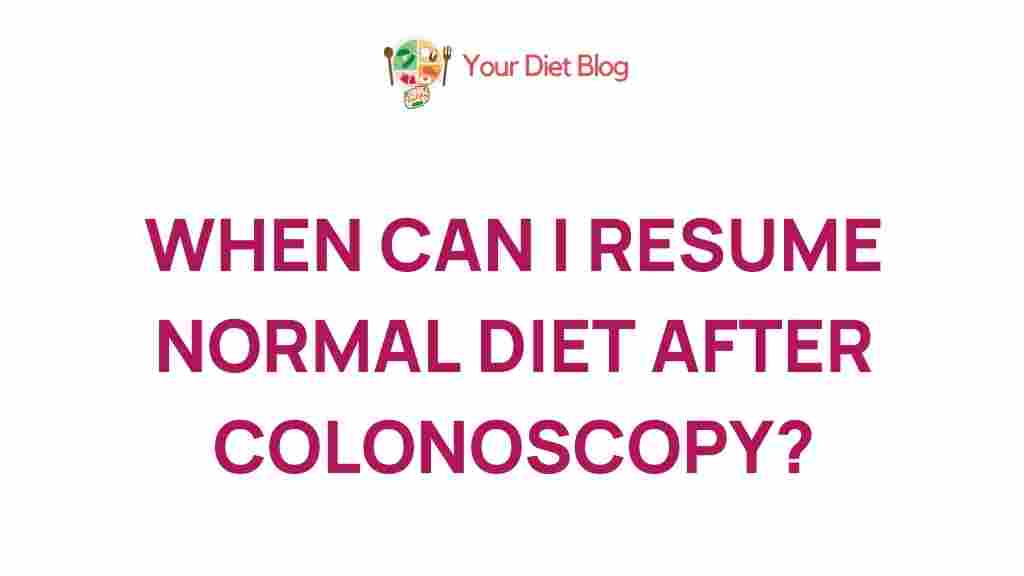Undergoing a colonoscopy is a vital step in maintaining digestive health and screening for potential issues. While the procedure itself is straightforward, what you eat after a colonoscopy plays a crucial role in your recovery and overall well-being. In this article, we’ll unveil the secrets of post-colonoscopy nutrition, providing you with clear and actionable advice to ensure a smooth recovery.
Why Post-Colonoscopy Nutrition Is Crucial
After a colonoscopy, your digestive system needs time to recover. The colon is typically emptied and sensitive, requiring gentle care. Proper nutrition aids in:
- Restoring energy and hydration levels.
- Preventing digestive discomfort or complications.
- Promoting healing and restoring gut balance.
With the right diet, you can bounce back quickly and feel your best in no time.
The Best Foods to Eat After a Colonoscopy
Choosing the right foods is essential to ease your digestive system back to normal. Focus on easily digestible, nutrient-dense options:
- Clear liquids: Start with broths, herbal teas, and electrolyte-rich drinks.
- Low-fiber foods: Opt for white rice, plain crackers, and mashed potatoes to avoid straining your colon.
- Lean proteins: Scrambled eggs, skinless chicken, and baked fish are excellent choices.
- Fermented foods: Probiotic-rich options like yogurt (without added sugar) can help restore gut flora.
Gradually reintroduce more complex foods as your digestion normalizes.
What to Avoid After a Colonoscopy
Equally important to knowing what to eat is understanding what to avoid. Certain foods can irritate your colon or slow your recovery:
- High-fiber foods: Raw vegetables, whole grains, and legumes can be harsh on your sensitive digestive system.
- Fatty or fried foods: These can cause bloating or discomfort.
- Spicy foods: Ingredients like chili peppers can irritate your gut lining.
- Alcohol and caffeine: Both can dehydrate you and disrupt recovery.
It’s best to reintroduce these foods gradually and monitor your body’s response.
Sample Post-Colonoscopy Meal Plan
Here’s a simple meal plan to guide you through the first 48 hours after your procedure:
- Breakfast: A small serving of yogurt with a glass of apple juice.
- Lunch: Chicken broth with a slice of white bread.
- Dinner: Baked cod with mashed potatoes.
- Snacks: Plain crackers or gelatin.
Hydration: A Key Element of Recovery
Staying hydrated is critical after a colonoscopy. The preparation process often leaves you dehydrated, and your body requires fluids to recover efficiently. Aim to drink:
- At least 8-10 glasses of water per day.
- Electrolyte-enhanced drinks for added minerals.
- Herbal teas for a soothing effect.
Avoid sugary or carbonated beverages, which can exacerbate bloating or discomfort.
Common Post-Colonoscopy Issues and How to Address Them
Dealing with Bloating or Gas
Many people experience bloating or gas after a colonoscopy due to air introduced during the procedure. To alleviate discomfort:
- Drink warm herbal teas, such as chamomile or peppermint.
- Engage in light physical activity, like walking, to encourage movement in your digestive tract.
Managing Constipation
If constipation occurs, consider:
- Increasing water intake.
- Slowly incorporating fiber-rich foods after the first 24-48 hours.
- Consulting your healthcare provider before using laxatives.
When to Contact Your Doctor
If you experience severe pain, excessive bleeding, or other unusual symptoms, reach out to your healthcare provider immediately.
Long-Term Dietary Considerations Post-Colonoscopy
Maintaining a healthy diet is not only beneficial for recovery but also for overall colon health. Incorporate these habits into your routine:
- Include plenty of fruits and vegetables for fiber and antioxidants.
- Stay hydrated consistently.
- Limit processed foods and red meats.
For more tips on maintaining a healthy digestive system, visit our digestive health resource page.
Conclusion: Prioritize Your Recovery
Recovering from a colonoscopy doesn’t have to be daunting. By following these nutritional guidelines and listening to your body, you can ensure a smooth and speedy return to your daily routine. Remember, proper post-colonoscopy nutrition sets the stage for long-term digestive health.
For additional information about colonoscopies and their benefits, explore this comprehensive guide from the Mayo Clinic.
This article is in the category Nutrition Basics and created by YourDiet Team
